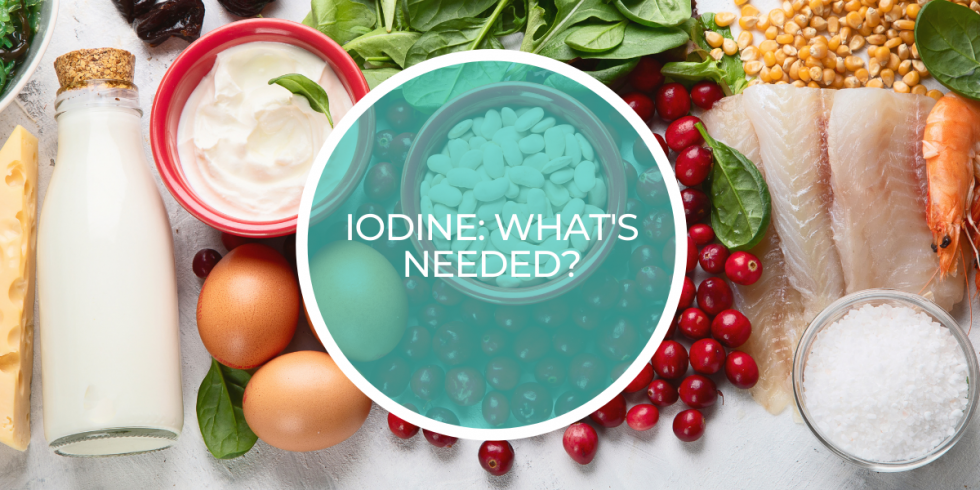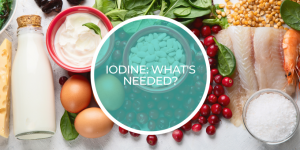- 26 October 2023
- 418
Balancing Iodine Intake: Nurturing Thyroid Health with Mindful Dietary Choices

Introduction
Balancing iodine intake is essential for maintaining optimal thyroid health. Iodine, a trace element often overlooked in our diets, plays a crucial role in the functioning of the thyroid gland. In this article, we will explore tips for achieving a balanced iodine intake through dietary choices, ensuring that your thyroid health is optimized without the risk of excessive consumption.
The Delicate Balance of Iodine
The thyroid gland, a small but powerful organ, relies on a steady supply of iodine to produce thyroid hormones that regulate various physiological processes. Achieving the right balance is key, as both deficiency and excess iodine can be detrimental to thyroid health.
Iodine Deficiency: Insufficient iodine intake can result in an underactive thyroid, known as hypothyroidism, leading to symptoms like fatigue, weight gain, and an enlarged thyroid gland (goiter).
Iodine Excess: Conversely, excessive iodine consumption can also disrupt thyroid function, potentially causing hyperthyroidism, autoimmune thyroid conditions, or thyroiditis.

Balancing Iodine Intake: Tips for a Healthy Thyroid
- Know Your Requirements: Understanding your iodine requirements is the first step in achieving balance. Requirements vary by age and life stage, so it’s essential to know how much iodine you need.
- Iodine-Rich Foods: Incorporate iodine-rich foods into your diet. Seafood, dairy products, and eggs are excellent sources. Seafood, in particular, provides a significant iodine boost.
- Iodized Salt: Use iodized salt as your primary seasoning. It’s an easy way to ensure a consistent iodine supply. However, be mindful not to overuse salt, as excessive sodium intake can have other health implications.
- Dietary Diversity: Opt for a diverse diet to obtain nutrients from various sources. This helps balance your iodine intake and reduces the risk of excessive consumption.
- Limit Seaweed Intake: While seaweed is exceptionally rich in iodine, its iodine content can be highly variable. If you enjoy seaweed, consume it in moderation and be mindful of the type and source.
- Supplements with Caution: Consult with a healthcare provider before taking iodine supplements. Iodine supplements are generally not necessary for individuals with a balanced diet, and excess iodine from supplements can lead to thyroid issues.
- Regular Monitoring: If you have concerns about your iodine intake or thyroid health, consider regular thyroid function tests. This can help detect any thyroid issues in their early stages.
Mindful Iodine Consumption
Balancing iodine intake is all about mindful consumption. Here’s how to ensure that you maintain a healthy relationship with iodine:
- Portion Control: Be mindful of portion sizes, especially when consuming iodine-rich foods. Smaller portions can help prevent excessive iodine intake.
- Salt Awareness: Be aware of the salt content in processed and restaurant foods. Excessive salt intake can lead to excessive iodine intake, so choose low-sodium options when possible.
- Dietary Variation: Vary your diet to include a wide range of foods. This helps distribute iodine intake more evenly and minimizes the risk of excess consumption.
Image By: https://inside.hochdorf.com/
Conclusion
Balancing iodine intake is a fundamental aspect of maintaining a healthy thyroid. With the right dietary choices and mindful consumption, you can ensure that your thyroid functions optimally without the risk of excessive iodine intake. Remember that achieving this balance is a proactive step toward nurturing thyroid health and supporting your overall well-being.


